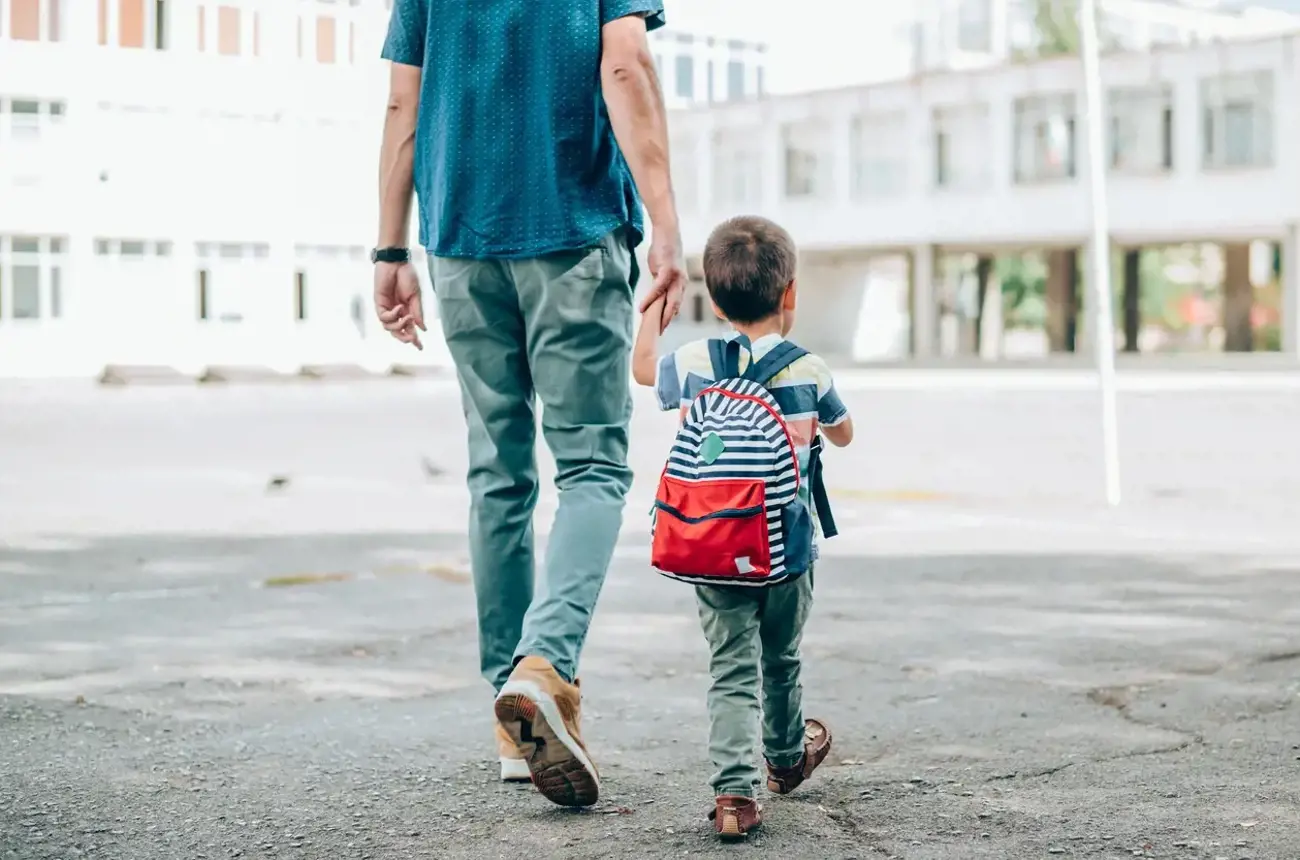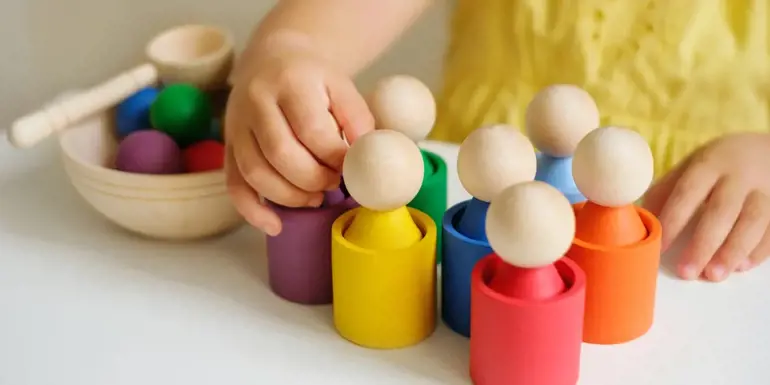If you are a parent of a child starting school next year you might be wondering what’s the most important thing to focus on in the lead up? How to really set your child up for success at primary school?
In days gone by the biggest consideration of readiness for school was a child showing interest in reading or, being able to write their name. It is now widely accepted that the social and emotional skills needed for kids to navigate school is by far the bigger area that supports a smooth adjustment into primary school.
Here are my top FIVE tips to assist with the social and emotional adjustment into school for kids that involve DOING less for your child, not more, as we head into the final weeks before many little kids start BIG school:
Practice the basics
So simple it’s easy to overlook: Can your child open their own lunchbox and drink bottle? Can they take a jumper off unassisted? Or get a shoe back on if it comes off? Can they go to a communal toilet and use it independently? These are the skills we tend to overlook when thinking about school readiness and it's these seemingly little things that can turn an ordinary day into struggle city for a little five-year-old navigating kindy or prep. The more confident your child is with the basics the more they can focus on the other aspects of adjusting to school.
The answer lies in practice:
Serving lunch in your child’s lunchbox in the weeks before school, assisting them to learn how to dress independently, and even working on their skills at opening a pack of ‘rice wheels’ will mean that when your child is at school, already navigating so much learning they won’t feel lost when it comes to basic eating or self-care.
Let them play
As famous child psychologist Jean Piaget said, "Play is the work of children." Or in the words of Fred Rogers, “Play is often talked about as if it were a relief from serious learning. But for children, play is serious learning.”
It might be tempting to get out the educational apps to prepare a child for seated learning, but evidence shows that working on their gross and fine motor skills outdoors makes a much bigger impact on readiness to learn. Additionally, through a wide variety of outdoor and indoor play, kids can work on their ability to share, take turns, and practice winning and losing. Essential skills for navigating the classroom and the playground.
When my eldest son (now 14) was starting kindy, the principal told us to ‘go home and play lots of UNO over summer – and make sure that sometimes you let your child lose’. While that can sound harsh, she explained that many kindy starters hadn’t had much experience with losing or missing out…. According to her there was only one pink pencil in the pack and 23 kids in each class. So, most kids will have to face the disappointment of missing out on their choice many times a day.
The answer lies in play:
Playing games where kids get an opportunity to miss out, or lose, with the emotional support and safe base of their parents give little kids a chance to practice navigating these ups and downs, and result in a child who is more resilient when small disappointments happen at school.
Talk less (and listen more)
Much like preparing our little ones for other big transitions in life (like becoming a big brother or sister) sometimes we talk a bit too much and this can add pressure to our kids.
When we ask our kids over and over if they are excited? If they feel ready? Or tell them stories about how much they will LOVE school and how much fun they will have - it can add pressure or set them up for unrealistic expectations.
Same with playful threats about the expectations of school or saying “you won’t be able to carry on like that when you’re in big school” …. This is probably more about our worry as a parent than our child's readiness and will generally add an element of stress that isn’t helpful in the weeks before school.
The answer lies in letting them know we hear them
Ask open questions and listen to your child’s concerns. If your child expresses a fear about school, sometimes what they need is to be heard. As much as our instinct is to make it better or tell them everything will be fine, there can be such a relief in someone saying “I hear that you are worried, that makes sense. Starting school makes lots of kids feel worried”.
From there our child feels seen and heard, and less alone with that worry. It is from here that we can work on strategies to help with the nerves like having a connection ritual, or talking though who their teacher is and how they can ask for help if they need.
Create opportunities at home that build resilience and growth mindset
Resilience and the ability to get back up after falling is going to be important in the first year of school. When you are the smallest fish in a big pond, there can be a bit to adjust to.
We can increase our child’s frustration tolerance and resilience from home through play. Nature play and risky play are both good ways to build so many of the skills including resilience and self confidence that will come in handy at school.
The other big tip is to build a growth mindset by including the word ‘yet’ into your child’s world. Just say your child is upset that they can’t ride a bike the way an older sibling can? You might say ‘you can’t ride a bike yet, but with practice I think you will get better’ and see what happens as we open the door to possibility.
The answer lies in allowing some struggle
When we as parents can provide an environment where our kids can struggle, cry, and we coach and support as they learn, we provide an environment that helps build resilience.
Prepare yourself for the ups and downs of being a school parent
The adjustment into school for some kids takes a while. You might be thinking they will be tired for about two weeks and then they’ll adjust right? For many kids it takes a lot longer and your beautiful together five-year-old may suddenly be having meltdowns after school you haven’t seen since they were three.
The answer lies in patience
For many children the adjustment to school and all it entails can take time. For one year they are the smallest fish in a big pond. Learning the rules, making friends, navigating the playground, remembering to sit still, and on top of this learning to read and write. It’s a LOT. And for most kids it will show. You are not getting it wrong, and neither are they, it just takes time.
The lead up to starting school is a time of excitement as we help kids prepare for a new chapter. When we create safe opportunities for kids to practice big feelings with us, they go so much better when faced with these emotions in the playground.
Gen Muir is a Parent Educator, Author, social worker and a mum to four boys who has worked with more than 40,000 parents both privately and through her role as an Obstetric Social Worker at the Mater Hospital in Sydney.
Get more help with helping your child get ready for school with Gen’s book ‘Little People Big Feelings’ available here.
Website: https://www.connectedparenting.com.au/
Instagram: https://www.instagram.com/connectedparentingau/?hl=en
Download our School Readiness Checklist



































